Introduce
For anyone living or working in Washington, D.C., understanding your rights as a consumer and knowing where to turn for protection is crucial. While not a traditional "lawyer" in the private practice sense, the Federal Trade Commission (FTC) is an indispensable federal agency located right here in the District, acting as a powerful legal advocate for the public. Its mission is to protect consumers from unfair, deceptive, and fraudulent business practices, and to foster healthy competition in the marketplace.
The FTC is a bipartisan law enforcement agency with a unique and broad mandate. It's the only federal agency that tackles consumer protection and competition issues across a wide spectrum of the economy, ensuring a fair and trustworthy environment for everyone. Whether you've encountered a misleading advertisement, fallen victim to a scam, or suspect anti-competitive behavior, the FTC serves as a critical resource, working diligently to uphold federal laws that safeguard your economic well-being.
Unlike private law firms that represent individual clients for a fee, the FTC operates on a larger scale, pursuing enforcement actions against companies and individuals that break consumer protection and antitrust laws. This means that while they won't represent you personally in court, your report can contribute to broader investigations that lead to significant action against wrongdoers, often resulting in refunds for affected consumers. Their work also extends to educating the public and businesses, empowering D.C. residents and beyond to spot, stop, and avoid scams, and to understand their rights and responsibilities in the marketplace.
In a bustling metropolitan area like Washington, D.C., where a vast array of businesses operate, the presence of a robust consumer protection agency like the FTC is more important than ever. It provides a crucial layer of defense for locals against prevalent issues such as gift card scams, identity theft, and deceptive marketing, ensuring that the economic landscape remains fair and transparent for all. The FTC's commitment to protecting the public through law enforcement, advocacy, research, and education makes it a cornerstone of consumer safety in our nation's capital.
The Federal Trade Commission's main office, which serves as a central hub for its operations, is located at 601 New Jersey Ave NW Nwnj-726, Washington, DC 20580, USA. This address places the FTC in a prominent and accessible part of Northwest Washington, D.C., making it relatively convenient for D.C. residents and those in the surrounding metropolitan area to connect with the agency.
The location is well-served by D.C.'s extensive public transportation network. Union Station, a major transportation hub for Metro (Red Line), Amtrak, MARC, and VRE, is within a comfortable walking distance, providing excellent connectivity. Additionally, several Metrobus routes have stops near the building, facilitating easy access from various neighborhoods across the District. For those utilizing rideshare services or taxis, the New Jersey Avenue NW address is a well-known landmark, ensuring straightforward drop-offs and pickups.
While direct public access to internal offices for individual legal consultations is not the primary mode of interaction with the FTC (as they are a law enforcement and regulatory body, not a private law firm), the physical presence in D.C. signifies its deep roots in serving the nation's consumers. For visitors requiring access for official business, the FTC emphasizes the importance of presenting a REAL ID-compliant driver's license or other acceptable federal identification to ensure smooth entry. While the specific suite number Nwnj-726 is provided, the FTC encourages contact primarily through their official phone lines and online reporting systems for consumer concerns, which are designed for broad public accessibility. The strategic location ensures that the agency is embedded within the fabric of government operations, enabling effective collaboration and responsiveness to national consumer issues, which directly impacts locals.
The Federal Trade Commission primarily offers services aimed at protecting the public and ensuring fair competition in the marketplace, rather than direct legal representation for individuals. Their core services include:
-
Consumer Complaint Intake: The FTC serves as a central hub for consumers to report fraud, scams, identity theft, and unfair business practices. While they do not resolve individual complaints, these reports are crucial for identifying patterns of wrongdoing, leading to investigations and enforcement actions against companies and individuals.
-
Enforcement of Consumer Protection Laws: The FTC actively investigates and prosecutes companies that engage in deceptive advertising, telemarketing fraud, internet scams, and other unfair business practices. This includes seeking injunctions, restitution for consumers, and civil penalties.
-
Enforcement of Antitrust Laws: The agency works to prevent anti-competitive mergers and business practices that could lead to higher prices, fewer choices, or less innovation. They promote competition in various industries, from healthcare to technology.
-
Consumer Education and Advice: The FTC provides a vast array of free resources, tips, and alerts to help consumers recognize, report, and avoid scams, protect their personal information, manage credit and debt, and make informed purchasing decisions. This includes websites like Consumer.gov and IdentityTheft.gov.
-
Business Guidance: They offer guidance and resources for businesses to help them understand and comply with federal consumer protection and antitrust laws, fostering a fair marketplace for everyone.
-
Identity Theft Recovery: Through IdentityTheft.gov, the FTC provides personalized recovery plans and resources for individuals who have been victims of identity theft, helping them report and recover from the crime.
-
National Do Not Call Registry: The FTC manages the National Do Not Call Registry, allowing consumers to register their phone numbers to reduce unwanted telemarketing calls.
-
Research and Policy Advocacy: The FTC conducts research into marketplace trends, emerging technologies, and consumer issues, and uses this information to advocate for policies and legislation that protect consumers and promote competition.
-
Primary Federal Consumer Protection Agency: The FTC is the nation's leading federal agency dedicated to protecting consumers from deceptive and unfair business practices across nearly all sectors of the economy.
-
Broad Enforcement Authority: Empowered by Section 5(a) of the FTC Act, the agency can investigate and prevent unfair methods of competition, and unfair or deceptive acts or practices affecting commerce, including seeking consumer redress and civil penalties.
-
Proactive Scam Prevention: The FTC consistently issues consumer alerts, publishes educational materials, and hosts workshops to empower the public with knowledge to avoid prevalent scams, from gift card schemes to imposter frauds.
-
Robust Online Resources: Websites like ReportFraud.ftc.gov and IdentityTheft.gov offer user-friendly platforms for reporting issues and accessing personalized recovery guidance, making their services widely accessible.
-
Commitment to Fair Competition: Beyond consumer protection, the FTC plays a critical role in enforcing antitrust laws, ensuring that markets remain competitive and that consumers benefit from choice and fair pricing.
-
Collaboration with Law Enforcement: The consumer complaints received by the FTC are shared with a network of over 2,800 domestic and international law enforcement partners, significantly enhancing their ability to detect and combat widespread fraudulent activities.
-
Public-Centric Approach: As one reviewer noted, the people at the FTC are "courteous and to the point," indicating a professional and efficient approach to public interaction, even when dealing with sensitive issues like scams.
As a federal government agency, the Federal Trade Commission (FTC) does not offer "promotions" or "special offers" in the commercial sense that a private business might. Their services are publicly funded and are universally available to all U.S. consumers as part of their mandated mission to protect the public and promote competition.
However, the FTC consistently provides free and invaluable resources that can be considered a "standing offer" of immense benefit to the public. These include:
-
Free Access to Consumer Advice and Educational Materials: The FTC's websites, such as FTC.gov and Consumer.gov, are brimming with articles, alerts, videos, and guides on a wide range of topics, including spotting scams, managing debt, protecting privacy, and understanding consumer rights. All this information is available at no cost.
-
Free Online Fraud and Identity Theft Reporting Tools: Platforms like ReportFraud.ftc.gov and IdentityTheft.gov are free-to-use services that empower individuals to report incidents and receive tailored recovery plans without any fees.
-
Free Registration for the National Do Not Call Registry: Consumers can register their phone numbers to reduce unwanted telemarketing calls at no charge.
These resources represent the FTC's ongoing commitment to empowering and protecting consumers without any associated costs. Their "offer" is continuous public service aimed at fostering a safer and fairer marketplace for everyone, including residents of Washington, D.C.
To connect with the Federal Trade Commission (FTC) for consumer inquiries or to report fraud, here are the primary contact details:
-
Address: 601 New Jersey Ave NW Nwnj-726, Washington, DC 20580, USA
-
Phone: (202) 326-2222
For reporting fraud, scams, or unfair business practices, the FTC strongly encourages consumers to use their online reporting tool, ReportFraud.ftc.gov. This online platform is designed to efficiently collect crucial information that helps the FTC identify trends and take action against wrongdoers.
For identity theft assistance, visit IdentityTheft.gov, which provides personalized recovery plans.
While the phone number is provided, for specific consumer issues and reporting, the online resources are often the most direct and efficient way to engage with the FTC's services.
For the residents of Washington, D.C., understanding the role and services of the Federal Trade Commission (FTC) is incredibly valuable, as it acts as a foundational layer of protection in their daily lives. While it's not a private lawyer's office you'd hire for individual representation, the FTC is a vital resource for navigating the complexities of consumer rights and safeguarding against deceptive practices that can impact anyone in the District.
Firstly, its strategic location at 601 New Jersey Ave NW makes it a central and accessible government entity within D.C. Being just a short distance from Union Station and well-served by public transport, the FTC's physical presence underscores its integral role in the capital's regulatory landscape. While consumers typically interact with the FTC through its robust online platforms and phone lines, knowing that this powerful advocate is geographically rooted in their city provides a sense of reassurance and proximity to national-level consumer protection efforts.
Secondly, and most importantly, the FTC's core mission directly benefits D.C. locals by fostering a fairer and more transparent marketplace. In a bustling urban environment like Washington, where consumers frequently engage with various businesses, from local shops to online retailers, the threat of scams, misleading advertisements, and unfair business practices is ever-present. The FTC actively combats these issues on a systemic level. When a D.C. resident reports a "gift card scam," for instance, as noted in a review, that report contributes to the FTC's broader intelligence gathering, potentially leading to enforcement actions that protect countless others, including fellow D.C. citizens. This collective protection is invaluable.
The agency's dedication to consumer education is another significant benefit for locals. The FTC provides a wealth of free, practical advice on topics ranging from protecting against identity theft to understanding credit and avoiding common frauds. These resources empower D.C. residents with the knowledge to make informed decisions and recognize red flags, equipping them to navigate the marketplace more safely. For instance, if a local were concerned about a "gift card scam," the FTC's online resources would provide immediate guidance on how to identify and avoid such schemes, alongside the mechanism to report it. The feedback describing FTC staff as "courteous and to the point" further indicates an agency committed to effective public interaction.
Furthermore, the FTC's enforcement of antitrust laws indirectly benefits locals by ensuring competition, which typically leads to better prices, higher quality goods, and more choices for consumers in the District. This creates a healthier economic environment for everyone.
In conclusion, while the Federal Trade Commission is not a traditional "lawyer" for individual representation, it serves as a critical guardian of consumer rights and fair commerce for all residents of Washington, D.C. Its accessible location, comprehensive public services, and unwavering commitment to fighting fraud and promoting competition make it an essential and highly suitable resource for anyone living in the nation's capital. Knowing that such a powerful federal agency is actively working to protect their interests makes the FTC an indispensable part of the D.C. community's safety net.
Location & Map
601 New Jersey Ave NW Nwnj-726, Washington, DC 20580, USA
Customer Reviews
(6 reviews)
The people I dealt with were courteous and to the point.
Gift card scam
Scam!!! Stay away!!!!
Poor
More Laywer Nearby

McDermott Will & Emery
500 North Capitol St NW, Washington, DC 20001, USA
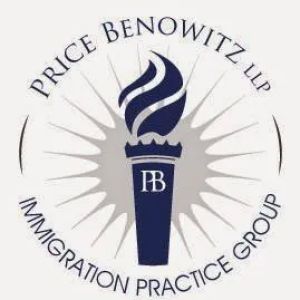
Nicole Dillard Attorney at Law
10 G St NE, Washington, DC 20002, USA
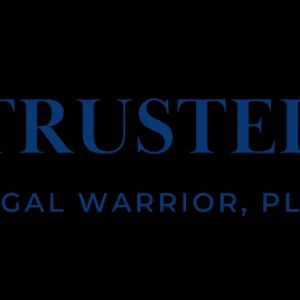
Trusted Legal Warrior PLLC
300 New Jersey Ave NW Suite 300, Washington, DC 20001, USA
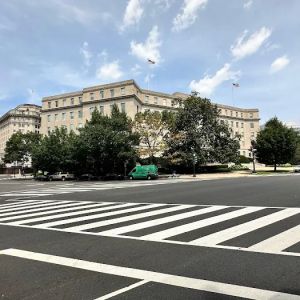
Jones Day
51 Louisiana Ave NW, Washington, DC 20001, USA
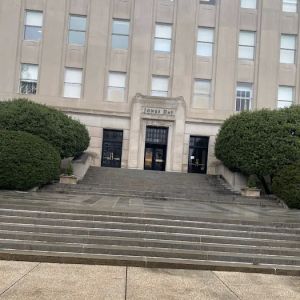
Mc Eleveen Jr Junius C
51 Louisiana Ave NW, Washington, DC 20001, USA
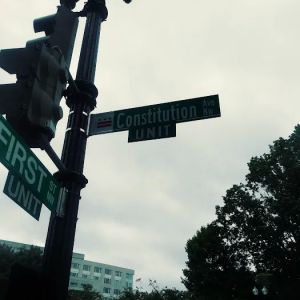
Capitol Tax Partners
101 Constitution Ave. NW # 675E, Washington, DC 20001, USA
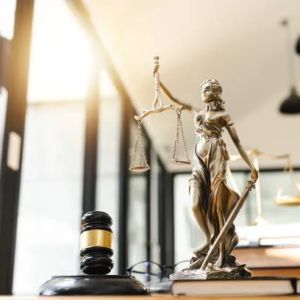
Brownstone Law
455 Massachusetts Ave NW, Washington, DC 20001, USA
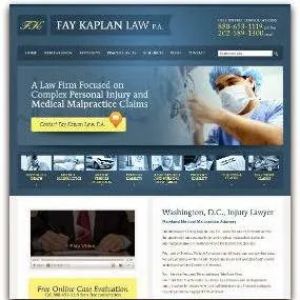
Fay Kaplan Law, P.A.
777 6th St NW #410, Washington, DC 20001, USA

Koehler Law
503 D St NW Suite 300, Washington, DC 20001, USA
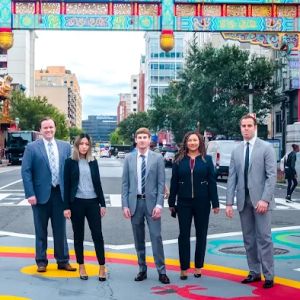
PagoJusto: Abogados de Derechos Laborales
519 H St NW, Washington, DC 20001, USA

Law Office of Megan D. Allburn
503 D St NW, Washington, DC 20001, USA
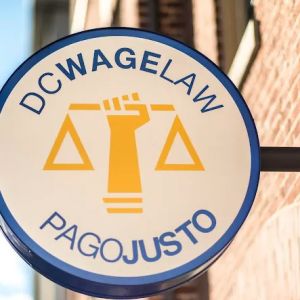
DCWageLaw
519 H St NW, Washington, DC 20001, USA
